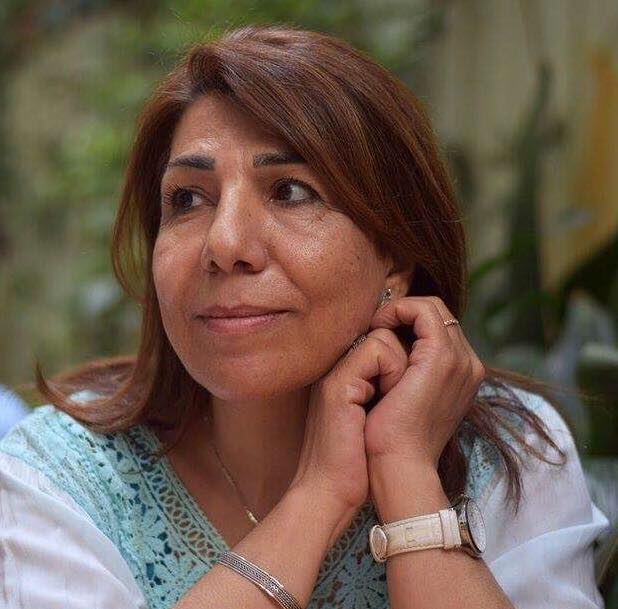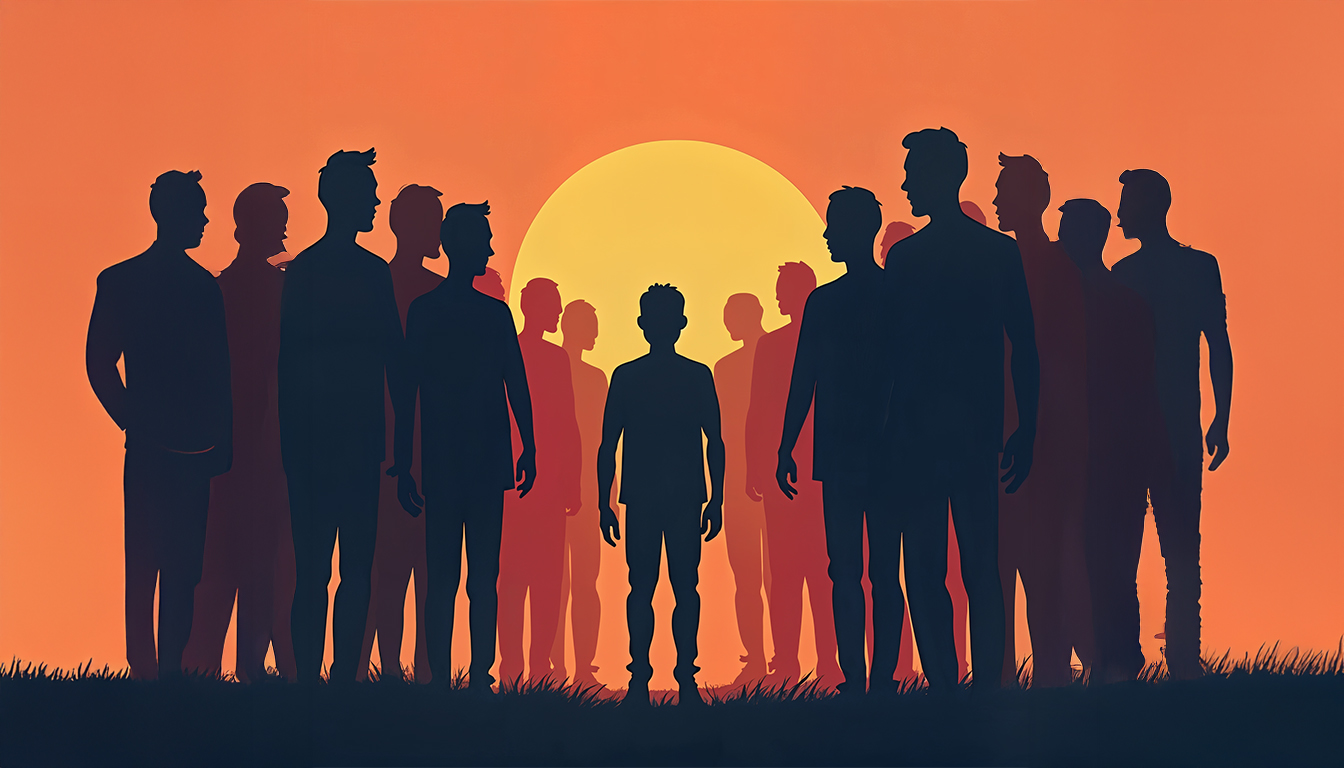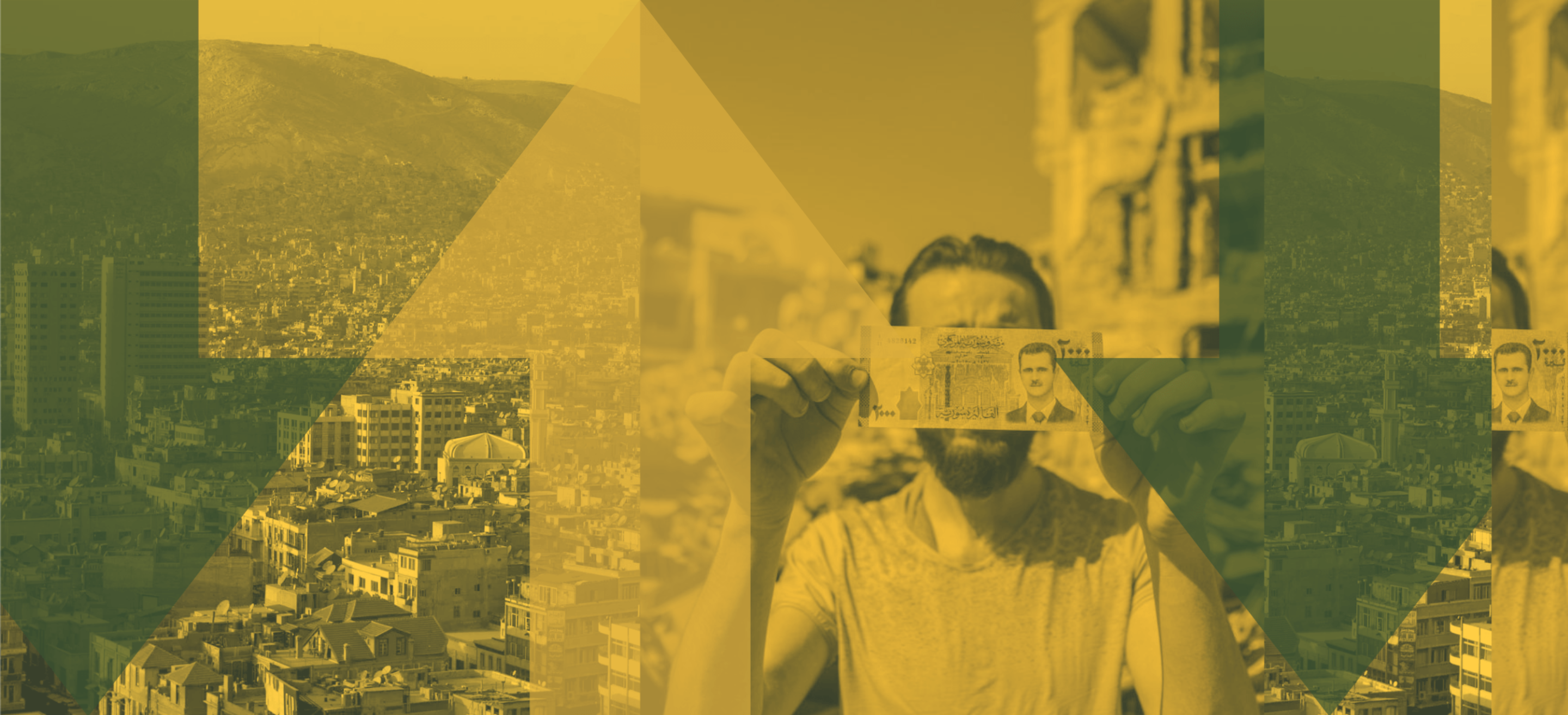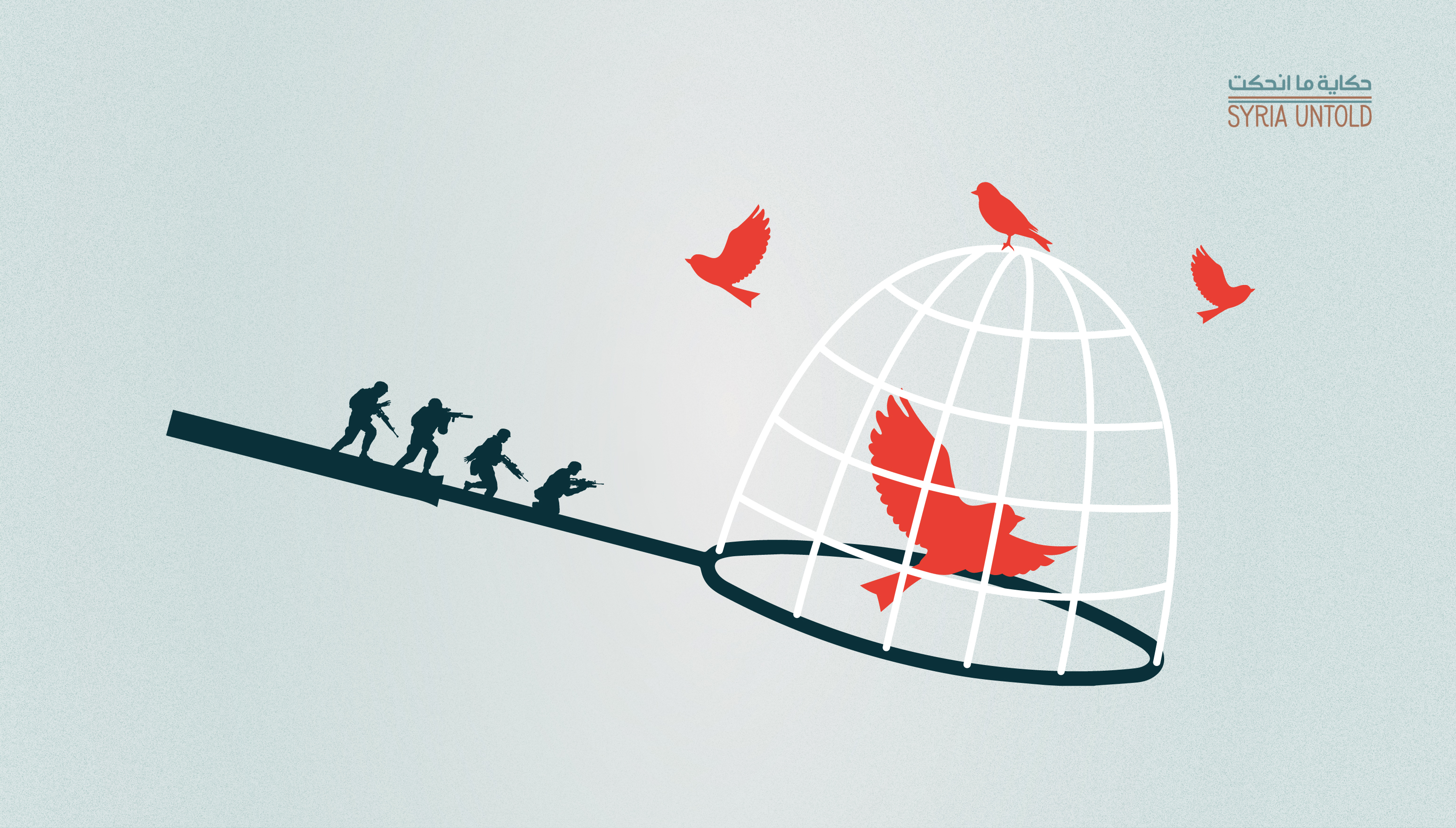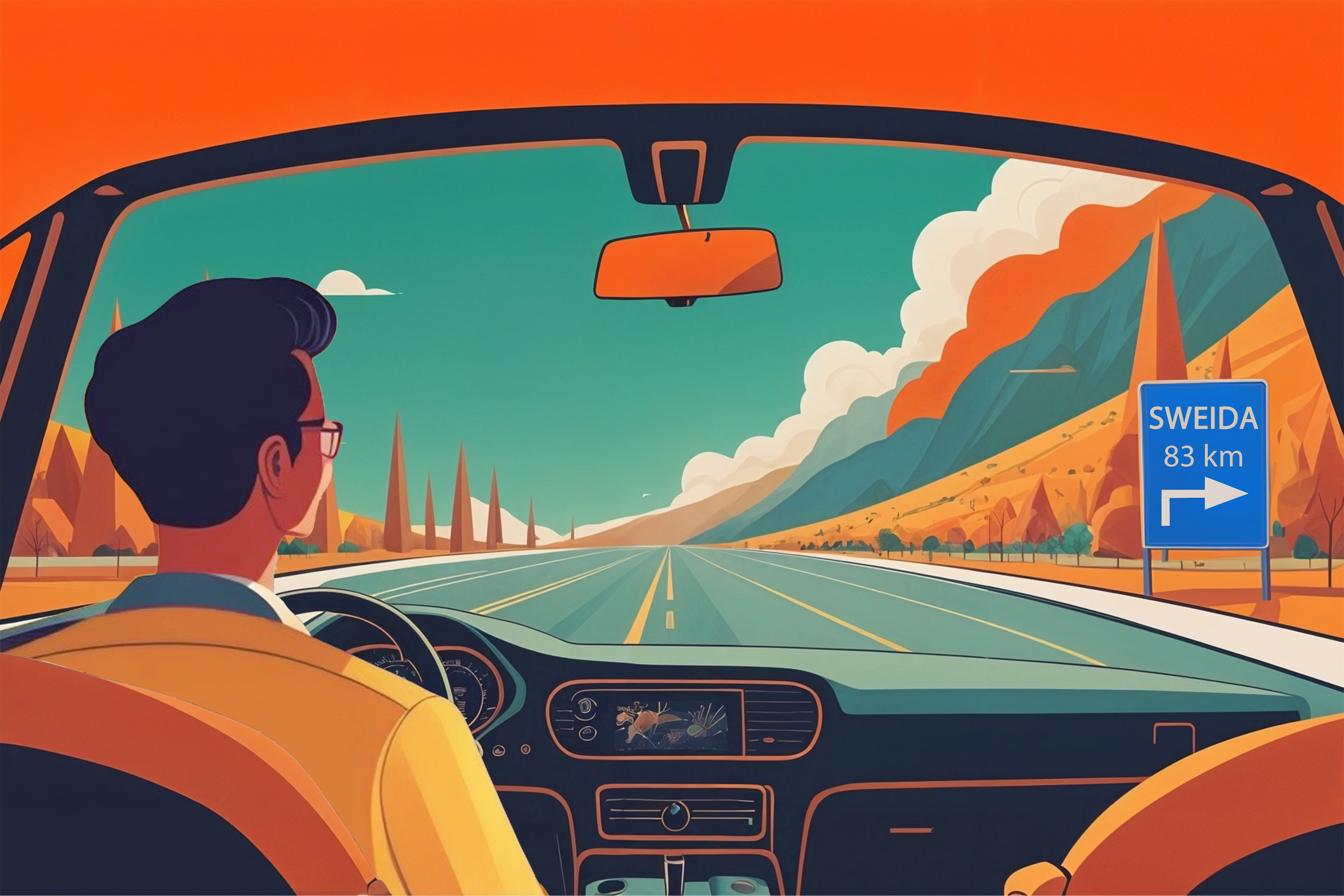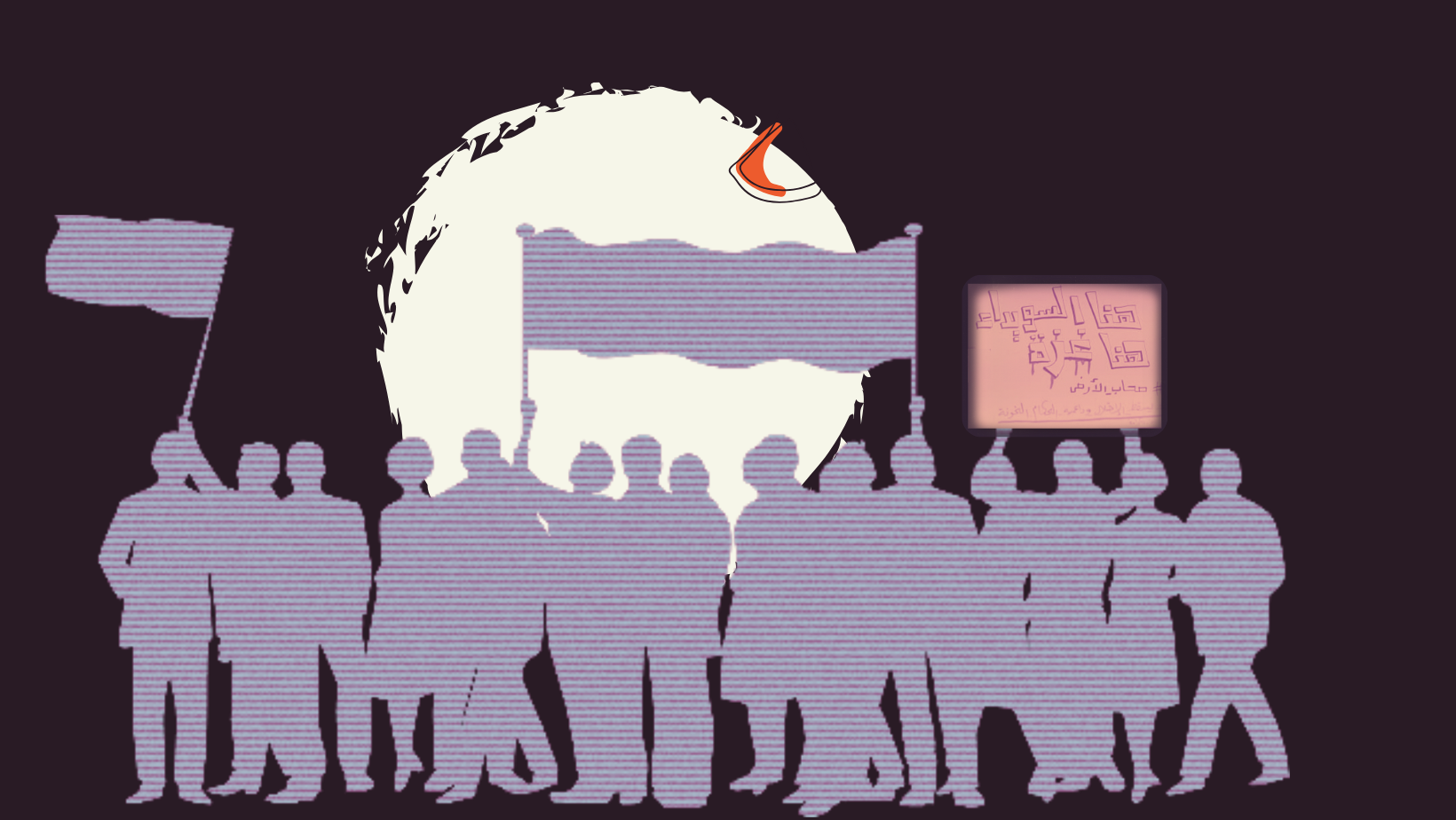Those violent emotions—there is no other name for them— their whirlwinds had been stirring since the moment I heard the news of the regime’s fall there, in my country, which had always been “my here” before I left it, a little over seven years ago, certainly not by choice. What mind could console a heart scorched with longing, asking it to wait even one more day? My emotions showed me no mercy when I took the first available flight from Berlin to Beirut, nor when I crossed into the country, absorbing with my eyes and soul its air, its vastness, its soil, its houses, and its people. But my spirit did not waver for long. In a fleeting moment, my heart, my eyes, and my feet aligned upon their first land, as if they had never left it—this country that, like me, had seen its destiny reversed in the blink of an eye, from the depths of despair to the unveiling of a new path. It was an inevitable reckoning between myself and my first home, a confrontation with its ability to speak while I found it heavy with a longing that tormented my soul—like an unforgiven sin.
At the new border crossing, I am startled to find the passport building closed—the very building that once stood as a barrier of terror, haunting the nightmares of exiles. What kind of generosity is this, oh land of unending suffering?! It would have been enough for us to be greeted with: "Welcome, my children... Enter in safety." But this generosity is misplaced, allowing anyone to cross without registering their entry—whether they are a local, a visitor, an official guest, a drug dealer, or even an international criminal.
I assumed that the absence of guards at the crossing was a sign of impending chaos, that disorder would soon consume the country after its fate had been overturned. But I was mistaken. There was an eerie sense of security, even in the midst of a blackout. From the border to Damascus, and then along the Damascus-Suwayda road, there was nothing but desolation and pitch darkness—except for military vehicles abandoned on both sides, their tires deflated, their glass shattered, resembling the wreckage of an enemy army. Yet they were, in fact, the remains of the national army’s units—vehicles left behind after the liberation, when people stormed them, slashing open the tanks and siphoning diesel into cans to fuel the heaters in their homes, homes that had suffered humiliation from the cold through countless winters. They drove away with their stolen fuel, spilling it onto the road, making it treacherously slick. Drivers now navigate it slowly, with extreme caution, to avoid accidents.
Suddenly, the driver said, "Please, put your head back," and sped up, the car shaking and swaying beneath us. Later, he told me that he had seen someone signaling with a bright light—robbers and thieves who exploited the absence of checkpoints to threaten passengers with either robbery or murder. But we had made it through.
I arrived in Suwayda at night... I enter my city, whose features I believe I memorized, like the veins on the back of my hand. I return with eagerness, longing, anticipation, hopes, and the fear of facing it once more. Clashing emotions fill my chest, and though my mind is alert, it cannot resolve their turmoil.
Al Anqoud Roundabout remains unchanged, just like the municipal building at the city's entrance. But the next roundabout—once called Al-Bassel after the paratrooper from his father’s and brother’s era—has now been reclaimed by the city, known again as Al-Bashan Roundabout. The urban structure built in the era of the bygone rulers has not collapsed. The car continues driving through the darkness, and I surrender to this deep, slow, deafening pain—a longing, and a fear even greater than it. Will I guide the driver to the right intersection leading to my neighborhood, to the street of my home? And my home itself—will it recognize what time has etched onto my features after such a long separation?
It was an inevitable reckoning between myself and my first home, a confrontation with its ability to speak while I found it heavy with a longing that tormented my soul—like an unforgiven sin.
In front of my apartment, the Schefflera rose has climbed and spread until it engulfed the entrance, continuing to grow in my absence. My husband—now standing before me with arms outstretched—never forgot to water it. And in his absence, my neighbor, now greeting me with the hymn "Raise your head high," took care of it.
With measured steps and awe, I enter, and nothing greets me but tears. My honey-colored shawl still hangs on the same hook where I left it seven years ago, untouched. My toothbrush and hairbrush remain in their place—until the moment I touch them, when the brittle teeth of the brush break in my hands. My husband, with all his stubbornness, had insisted on leaving my things exactly as they were, unmoved, no matter how long I was gone—a quiet promise that I would one day return. Family, then, is what breathes life into our existence and our belongings. And so do our neighbors. When we protect them, we are, in turn, safeguarding our own lives.
I whisper to the things around me: Peace to you, weary window blinds, worn-out furniture, and frayed kitchen and bathroom towels. Peace to your patience and waiting—to those who taught you that waiting, in itself, is a way of holding on to life.
Quickly, to my family... The deepening wrinkles on my father’s and mother’s faces mirrored those that had formed on mine—we had aged faster than time itself. They embraced me, each leaning on a crutch, yet their tenderness was stronger today than ever before. A whole tribe of my siblings’ children surrounded me—some born and raised in my absence, each having carved out a space for themselves. Six of those I had left behind, both girls and boys, had grown up and were now on the verge of graduating from university—studying medicine, informatics, psychotherapy, and sports science. The spark in their eyes rekindled the light in mine—and in the country.
A letter to Samar Saleh: The regime has fallen, but our world remains sorrowful in your absence
15 January 2025
First destination the next morning: Al-Karamah Square. It is worthy of being a place of pilgrimage. With quiet reverence, I stepped among its visitors—those who had revived it for over a year and bestowed upon its name, just as it had given them the strength to endure the death of the country until they could reclaim both their lives and their homeland. I was struck by those who had returned before me and after me. How had they not chosen to enter in silence, out of respect—first to face themselves before facing the crowds under the glare of cameras? A person should confront their conscience alone, in the shade, in silence, in contemplation.
I, ashamed of my long absence, slipped in among the people and regained my voice and the confidence that I was standing in my rightful place. Suddenly, my memory was revived, after years of heaviness that had plagued me. It was filled with everything I had missed in my exile, recalling names, faces, dates, and landmarks I thought I would eventually forget—but they came to me clear, bright, and distinct. The purity of this country's air is a remedy for the weariness of memory; the water of this land heals the wounds of exile, and the breath of my family restores my hope. The essence of joy—all of it—lies in the people of this place. I bonded with its land and its people from my very first moments, as if I had never been away for endless years. Their smiles are life itself, and their elegance, rising above the humility and wear of their clothing, is a slap in the face to every insult that tries to break them, only to recoil back onto those who cast them.
I drove my car at night, through pitch darkness, down old alleys, with no electricity or kerosene lamps. I wandered these alleys, guided only by my heart, reassured that I wouldn’t go wrong at the intersections, and they, in turn, hadn’t forgotten me and gave me their presence. I listened to Fahd Ballan’s songs, realizing that I was hearing them without tears—or with only a tolerable sadness. These songs had once filled my eyes with tears as I listened to them from Berlin.
I can’t even take a selfie and caption it with “I am in a country that suffocates me with its love,” because what is happening on the ground is far from the smiling faces in selfies on social media. I feel that the one taking the picture does so to convince themselves that they have truly returned—to their homeland, to their passion—while the camera flash momentarily silences the terror of confronting a cruel lover. A lover who has emerged from fourteen years of battles, whose wars have yet to settle, and who now braces for new regressive battles whose outcomes will take years to unfold.
The echoes of my own internal battles chastise me—shame and guilt intertwining. I am the survivor who did not endure the last years of hardship, now searching for myself in the features of old friends who, like me, have changed. Between us, the fog of differing suffering, needs, visions, and goals has crept in. The divide between those who remained and those who fled has turned into a personal battlefield, as if the closest of friends had somehow become the source of each other’s tragedies.
This generosity is misplaced, allowing anyone to cross without registering their entry—whether they are a local, a visitor, an official guest, a drug dealer, or even an international criminal.
But life here on Earth, in every small and large detail, is nothing like its counterpart on Facebook. Amidst the warmth of a live embrace, not from behind small screens, every past haze dissipates, bringing us back as schoolgirls wandering through our high school. Al-Fatat school where our former playgrounds once stood has now become a parking garage, and the place that once held my seventh- and tenth-grade classrooms has been transformed into a café called "Flamenco." I tell myself there is no harm in drinking a bitter coffee there and chatting with a young man who had silently frequented the square throughout the movement, never joining any (political) faction. He told me: People have come to realize that there is no escape from facing their dilemmas themselves. The most basic services are still unavailable—no water, no electricity, no fuel. Thirst, cold, and darkness persist. The only thing that has changed is that we have loosened up after the fall of the old regime, and that there is now at least a possibility of change, whereas before, the black tunnel seemed endless.
The Syrian Coast After the Fall of the Syrian Regime
10 January 2025
Here, we feel safe and compassionate toward one another. Organized crime has disappeared since the regime fell. There is no police, no security, and yet no new kidnappings, thefts, or assaults have been recorded. Traffic flows naturally on its own—no accidents, no honking, no drivers shouting at each other. The principles of civilized driving have returned overnight. Fights between people have stopped. Fear of one another has been replaced by empathy. Even the simplest of people have come to realize that the so-called security militias were the real cause of those crimes. The thefts and the fear of them have ceased. Only a few incidents of looting have been recorded, mostly from old government buildings. And finally, some justice has been achieved regarding the buildings that the government had rented from their owners for decades at shamefully low prices. Their rightful owners reclaimed them, emptied out the offices, placed new locks on the doors, and some even demolished the old structures altogether—cutting off any chance for the new government to seize them as the old one had.
The first day of arrival passes, and the devil of details awakens...
In the homes
A few days ago, and throughout the last years, people have had no energy or ability to repair what has been destroyed. They are waiting for the arrival of electricity, water, and fuel, while their lives are in a crazy race that never stops and never pays off. The most they could do was try to restore the damaged human relationships amidst the growing needs that have even led to insults, drowning people in despair. They rarely visit relatives and friends, there is no heating or hospitality fitting of the Syrian generosity passed down from ancestors. Yet, the energy of life still appears in their eyes.
The situation of my family is much more merciful than that of most families, those who were fed on a Syrian invention that the war years produced: pseudo-dairy and cheese. And those who bought food and cleaning supplies, not in regular packaging, but in nylon bags, and not in familiar weights like ounces and kilos, but in whatever could be bought for 1,000 or 5,000 liras, all cut from a monthly salary that can't even afford clean water. And no one asks about the quality of the materials or their expiration dates... They know the poor quality, but they stay silent. Hunger alone screams.
Try tasting a small plate of Kunafa from the most famous shop that makes it. Its price is 18,000 liras, and it has no taste other than sticky sugar. It is enough to taste any basic food or wipe your hand with local cream or use one of the cleaning materials to realize with all pain how low its quality is compared to any similar product in a country that respects people.
Economies of Syria: Four Heads for a Weary Body
28 June 2024
On the other hand, you can hardly believe how clean the houses look, how the smile never leaves the faces, and how the girls learned to paint their eyelashes with mascara that had run out of use, diluting its contents with vinegar to revive them and create beauty. Many homes have returned to cutting old newspapers and using them in the bathroom in the absence of toilet paper and even cold water.
Also, on the other hand, when a gift from an expatriate comes to a family—fried chicken, the taste of which has been forgotten for years—the family thanks the giver with all politeness and eats the chicken with modesty and grace, including the young children, as if they were an aristocratic family eating meat every day.
In return, an old friend, with whom we had recently quarreled, gave me two local eggs, a few Zalabia pieces, and three loaves of bran bread—perhaps by chance, or maybe she intended the symbolism of bread and salt. I count on her to make the local product capable of bringing us together in the coming days, as normal and loving people.
A Tour of the City
Love for the city does not prevent one from seeing the urban ugliness that has emerged in its new neighborhoods: huge multi-storey buildings, most of them without a license, still in their skeleton form. There is no harmony between their locations, designs, facades, areas, floor heights, or the connections between them and the roads.
The streets are filled with potholes as far as the eye can see, and there are irregular speed bumps... but a strange innovation that strikes a blow to eyesight, taste, and safety standards is repeated every 200 meters along the roads: a few huge rocks piled up in the middle of the road like scarecrows, brought as a last resort, as shields to protect the underground cables after they were repeatedly stolen. Over time, garbage has accumulated around some of them, and drivers have become accustomed to patiently circling around them. Despite this, they still cause traffic accidents.
The Market
The regular shops are almost deserted, even though countless new ones have appeared—brands, heritage stores, agencies, electronics... However, the life of the market is almost entirely confined to kiosks, carts, and stalls. They resemble makeshift shops that have gradually consumed the city's sidewalks until they were destroyed. These kiosks have become so rampant that they have blocked out the regular market, leaving pedestrians with nowhere to walk and narrowing the streets, providing minimal service for both pedestrians and drivers. These kiosks hold all sorts of household supplies, from seasonal vegetables to heavy electrical appliances. Vendors shout about their goods with microphones, the overlapping sounds overwhelming passersby, who often wish for the return of the more orderly Al-Nahasseen market. The owners have worked hard to decorate these kiosks to attract visitors. They designed the shelves as if they were facades of an old market, paved the floors, and installed doors with locks, as if the market would continue indefinitely. This scene reminded me of the concrete arsenals Israel left behind after its departure from southern Lebanon in 2000. But while Israel left its remnants in its day, today there seems to be no greater calamity in the market than these kiosks and the difficulties of removing them. It is no secret that most of their owners were connected to security forces, and all of them were armed.
Banks
Their entrances are guarded by armed factions. I entered the Real Estate Bank to change my card, and I took a deep breath, feeling that I was truly entering a government institution. Amidst the crowds of customers and the lack of heating, employees sit bundled in their coats, scarves, and hats, dealing with their professional responsibilities, showing sympathy, patience, and a tangible desire to help.
The crowding is even more intense at the Commercial Bank, where retirees, who rely solely on their pension salaries, wait. They stand for long periods in the cold, enduring helplessness, illness, and weakness. Most of them return after hours, disappointed, only to repeat the same ordeal the next day.
Since the fall of the regime, the kiosks in front of the banks have added a new and bold service: buying and selling dollars. Suddenly, the name of the currency exchange has shifted from "black market" to regular exchange shops, which have appeared on every street, and the word "dollar" is no longer taboo. Pricing goods in service stores is now listed alongside the Syrian pound, as though it had been the standard currency in the country for decades. Due to the fluctuations in the value of the pound and the disparities between government banks and the black market, people quickly learned how to trade in currency: they sell dollars to the central bank at a higher price than in exchange shops, receive the amount in Syrian pounds, then sell them to private exchange shops, profiting from the difference.
The essence of joy—all of it—lies in the people of this place. I bonded with its land and its people from my very first moments, as if I had never been away for endless years. Their smiles are life itself, and their elegance, rising above the humility and wear of their clothing, is a slap in the face to every insult that tried to break them, only to recoil back onto those who cast them.
Transportation is a major problem—it is the open wound of every university student struggling to reach their campus in Damascus or Latakia. The situation within the city is not easier. The high cost of taxis has forced people to rely on their feet for mobility as much as possible. The price of gasoline is a catastrophe for private car owners, and buying it in dollars is often cheaper than in Syrian liras. You see motorbike owners desperately trying to scrape together 10 or 20 dollars just to afford a few liters of fuel.
Young People
For most young people, education is no longer their top priority. They were waiting for an opportunity to travel, and now they are simply waiting. In the meantime, they continue learning—but in their own way. Many have turned to researching and mastering online business, finding ways to make money through e-commerce. The methods of trading are both comical and heartbreaking. One young man, for example, partners with a friend abroad to create a website and sell products—Shein, for instance—in an almost miraculous way: he showcases the goods on his website, lists his WhatsApp number, then communicates with customers directly. They agree on a price and set a meeting point in a well-known square or street to exchange cash for goods—since neither party has a bank account.
Religion
The increase in the number of people wearing religious clothing is striking compared to before 2011. Religious education circles have also multiplied, especially in private home gatherings, particularly among women. A new and humiliating phenomenon has emerged in Suwayda’s customs: women in religious attire begging on the streets. This is unprecedented because religious clothing is considered sacred, and for someone wearing it to beg is seen as deeply shameful.
At funerals in the Ain al-Zaman shrine, unveiled women used to enter without anyone interfering. That has now changed. Female employees have appeared at the shrine, preventing unveiled women and young girls from entering. Over time, the enforcement of this rule has escalated, with demands being made over a microphone for all women to cover their heads before entering. This puts women who wish to make their own choices in an awkward position. The nature of the place—both as a religious shrine and a setting for mourning—makes it difficult for anyone to push back without it being perceived as provocation rather than personal freedom.
Family
Family loyalties and the glorification of tribal affiliations have never been as pronounced as they are today. In addition to the declared military factions, large families have formed their own private militias, while smaller families have forged alliances to resolve both public and private disputes through the language of arms.
Culture
Book prices have skyrocketed, even at second-hand book stalls. Yet, those passionate about reading and culture are not few in number—they have considered literature one of their lifelines during years of siege. A single literary evening or morning gathering, promising quality writing, can attract a larger audience than all political factions combined. The same goes for activities in literary and music clubs, as well as art workshops, particularly for children. These initiatives are seen as the most promising foundation for a cultural revival that could bring about meaningful change.
Cafes
They have proliferated in every building, each carefully selecting its name, décor, and music. Yet, they remain unheated, and their patrons are few. The café culture has not yet been fully embraced as it should, and financial hardship only deepens the barrier to its inclusion. Few can afford to drink a cup of coffee for eight thousand liras or a hot chocolate for 15,000.
The pulse of the street, the demands of the people
The general public is not currently preoccupied with the future of Syria.
They want to be free from the humiliation of cold, hunger, and darkness. They long for electricity, fuel, and an effective government. They resent their unemployment, the dismissal of workers, and the delays in pension payments. They worry about how to cover their children's university expenses.
They shout: We want job opportunities, not humiliating aid.
They are all certain that they are alone, and no one truly represents their voice.
I am searching for myself in the features of old friends who, like me, have changed. Between us, the fog of differing suffering, needs, visions, and goals has crept in. The divide between those who remained and those who fled has turned into a personal battlefield, as if the closest of friends had somehow become the source of each other’s tragedies.
They say to those who claim to speak on their behalf: We do not care about the definitions of a religious or civil state, nor about democracy or national sovereignty. Take your time forming your civil, governmental, and administrative committees—but give us a chance at dignified work first. Then, we will think with you about unions and other political structures. That is why we need official media, first and foremost a national television channel.
Al-Sheikh Al-Hajari's name is on everyone's lips—not necessarily because he is the loudest voice of the movement, but because civil voices are largely absent. There isn’t unanimous agreement on him, yet he remains the only visible figure whose social symbolism aligns with the religious. Meanwhile, the movement itself remains weak and fragmented, lacking a unified voice. Many of its most prominent activists have drifted under the shadow of the Sheikh’s turban, while others simply critique his shortcomings from the sidelines.
Behind the scenes, there are influential and active figures who refuse to appear in the media. The preachers in the square and the various currents of the movement hold little weight on the ground. They have failed to earn the people’s trust through their actions. The public describes them as “selfish and narcissistic, all words and no action—aspiring to positions rather than rebuilding the country, eager to appear on screens and meet journalists, but doing little to help their people. Worse, they fought among themselves, when what we needed was for one of them to propose real, vital projects according to their expertise.”
Women's voices, in contrast, seem more measured in their thinking and speech. They know their goals and move toward them with purpose. Their gatherings and actions reflect a broader concern for the collective rather than just personal demands. Many place their hopes on women as the force that could lead Syria toward real change—perhaps even something akin to Germany’s post-World War II transformation.


